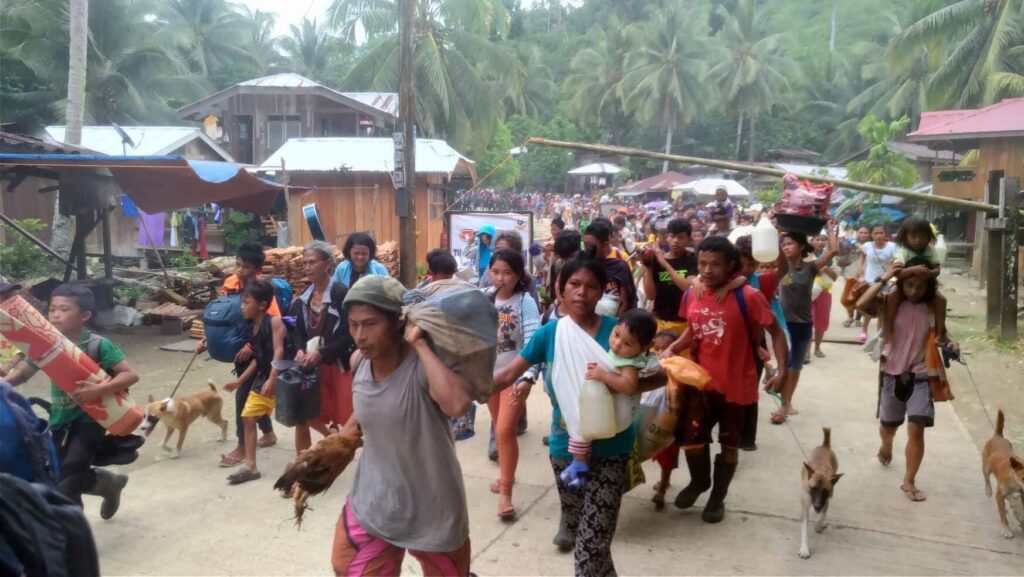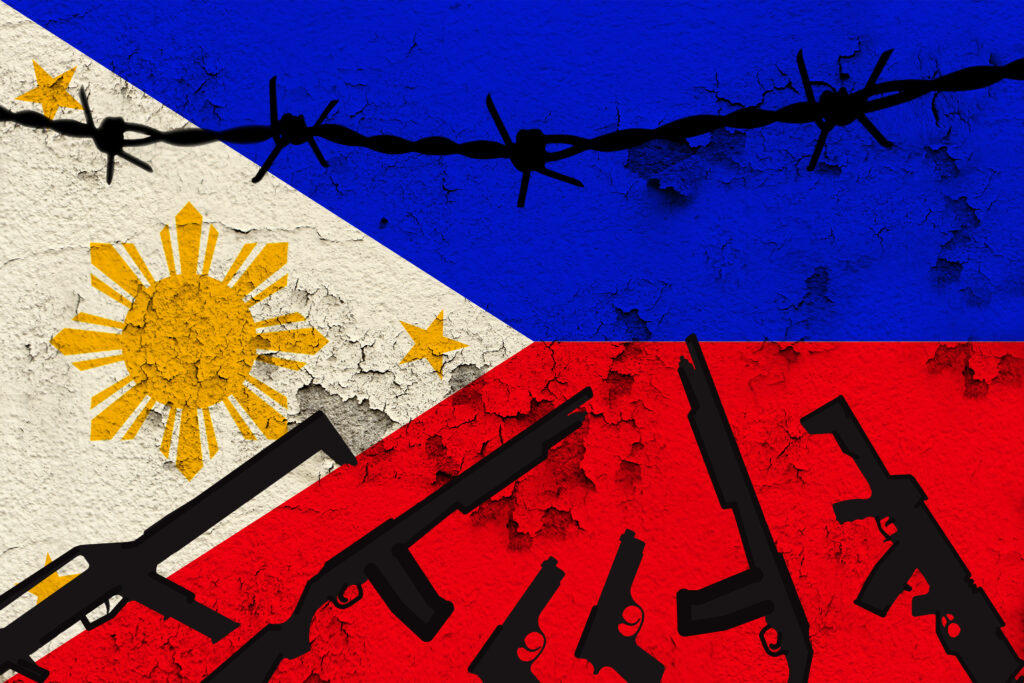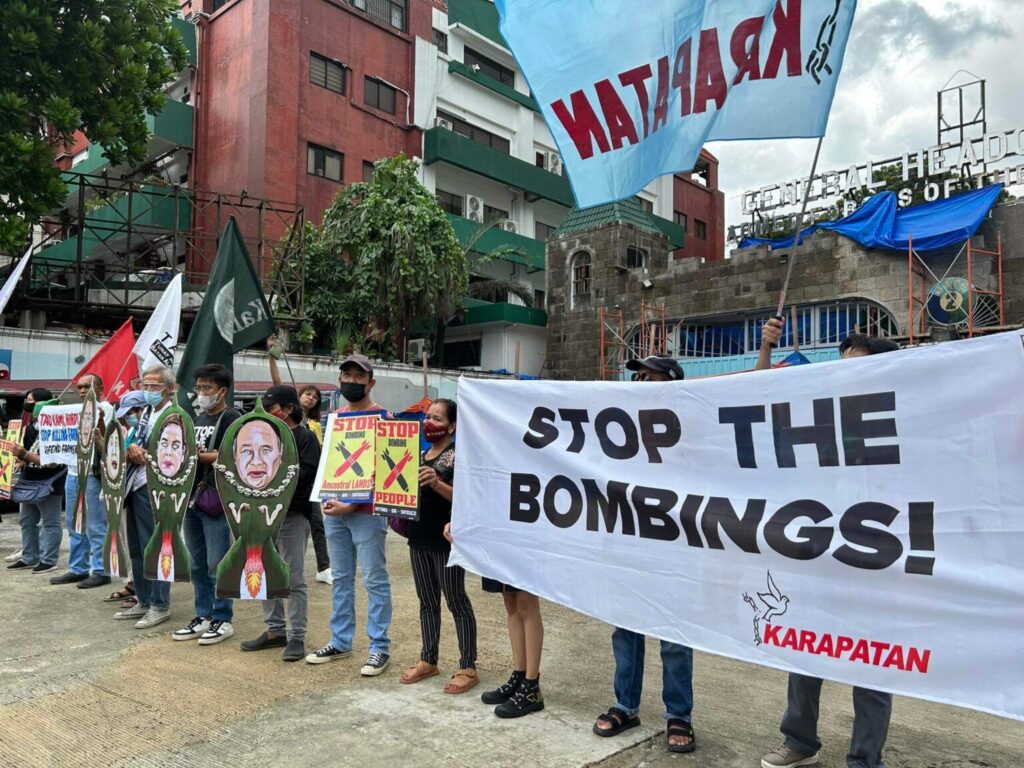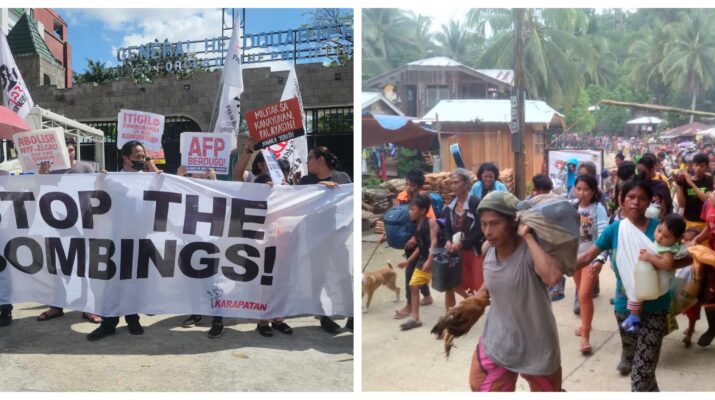In one of former President Rodrigo Duterte’s most notorious one-liners, he told soldiers of the Armed Forces of the Philippines (AFP) in 2018 to, “shoot female rebels in the vagina”. He justified this by saying mutilating women fighters would render them “useless”.
While definitely unhinged, the trademark Duterte-style of “shock and awe” statements garnered cheers from his own supporters as a testament of the former president’s “political toughness” in dealing with the communist rebellion which has been waging since 1969.
Although the Philippine government is in a legitimate war with the communist New People’s Army (NPA), intentionally mutilating rebels in battle violates internationally-agreed rules of war or International Humanitarian Law (IHL).

Even in armed conflict, there are norms that belligerents are expected to adhere to. These norms create a common understanding of acceptable behavior in warfare, contributing to accountability and justice.
International Humanitarian Law aims to maintain some humanity in armed conflicts, saving lives and reducing suffering. To do that, IHL regulates how wars are fought, balancing two aspects: weakening the enemy and limiting suffering.
The rules of war are universal. The Geneva Conventions, which are the core element of IHL, have been ratified by all 196 states including the Philippines. Although ratified, many state actors still fall afoul of these rules – committing what is known as, war crimes.
Examples of war crimes include targeting unarmed members of the conflict, such as civilian supporters, aid workers, and medics. Combatants who are injured, sick, or have been detained as prisoners-of-war (POWs) are also protected from violence, including torture.
This emphasis on humane treatment, while focusing on living combatants, is also extended to the dead. The First Geneva Convention mandates that parties to the conflict must search for and collect the wounded and dead without delay.
It also requires the respectful handling of the dead, which implicitly includes prohibiting mutilation – negating that order former President Duterte gave to his soldiers about how to treat female rebels.

It may be difficult to fathom how in warfare, when the intention of warring parties is to neutralize each other’s forces – including killing combatants – there are still rules that mandate a level of dignity and respect for each other.
By maintaining a semblance of humanity through enforcing IHL, society can prevent the worst excesses of war and shut out further injustices from occurring such as a genocide. If the warring parties are also able to maintain trust with each other by adhering to IHL, they can create a foundation for peace and trust between former adversaries – making lasting peace possible.
When IHL is violated however, the opposite end-results happen: atrocities committed are exacerbated, the number of casualties in warfare exponentially increase, and worst of all an enduring hatred between the adversarial parties is cultivated. Ceasefires don’t last and the outbreak of warfare is at high risk of relapsing.
Violating IHL creates an enduring side-effect on humanity, hence why international bodies reserve the harshest condemnation towards war criminals. Be that Charles Taylor who ordered human sacrifices during the Sierra Leone Civil War, or Dinko Šakić who ran extermination camps against ethnic Serbs in the Croatian War of Independence.
There have been repeated violations of IHL by the Philippine government against its own people. The two most recent administrations of Rodrigo Duterte and incumbent President Bongbong Marcos have both overseen its military commit war crimes; these atrocities are now the subject of the International People’s Tribunal which convened in Brussels this past week.
Left-wing activists have been targeted for their alleged support of the communist New People’s Army (NPA) rebellion, despite never having been involved in combat themselves. Many have fallen victim to extrajudicial killings, which in turn creates a chilling effect that silences their activist colleagues from further dissent.

Civilian communities have also been forced to evacuate as the Philippine military have conducted indiscriminate aerial bombings and artillery fire on them, allegedly to weed out rebels. Though the trauma and human suffering inflicted on civilians are too significant to accept as collateral damage.
Several rebels who were taken as POWs were also summarily executed by the Philippine military. Juanito Magbanua, leader of the NPA’s command in Negros Island, was seen to have surrendered to soldiers but was later found murdered.
Another rebel fighter, Kaliska Peralta or otherwise known as “Ka Rekka”, was also reportedly unarmed when she was slain by Philippine soldiers. Eyewitnesses recounted seeing Peralta surrender to the military, but she would still be found dead eventually.
Such actions are violations of IHL, particularly rules on the treatment of POWs and unarmed parties to the conflict. With these brazen violations of the IHL, the Duterte and Marcos regimes make a just and lasting peace more difficult to attain.
For these war crimes, Marcos and Duterte must be held accountable. The International People’s Tribunal will gather evidence to prove their culpability in these war crimes, but punishments must be meted out by an international body when the inevitable “guilty” verdict is handed down on the two leaders.
The Philippine military must also be reformed, ensuring its ranks strictly adhere to the IHL. Until such resolutions are made, the communist rebellion in the country will only grow in strength and longevity as basic human dignities are not respected.

